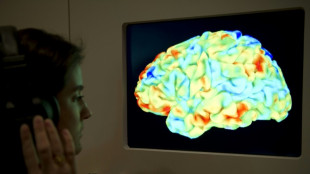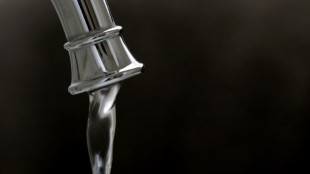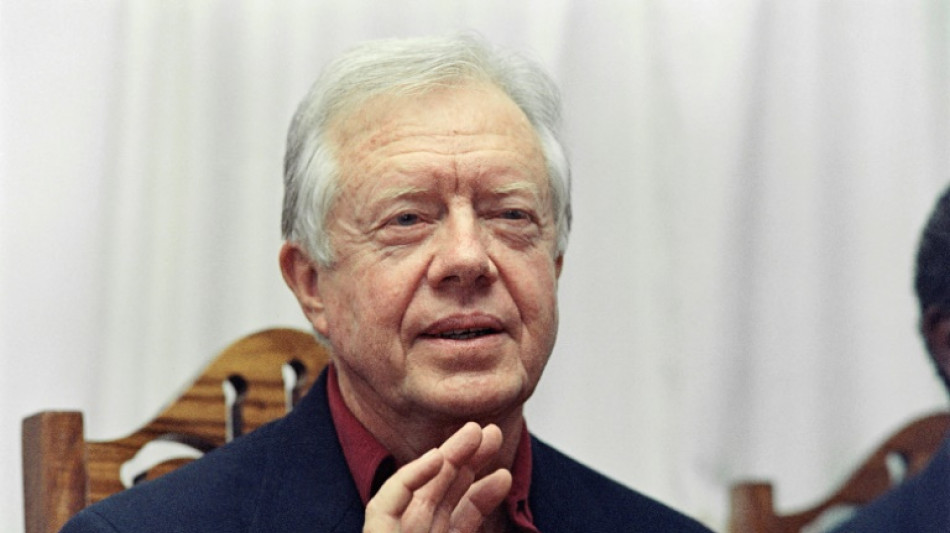
-
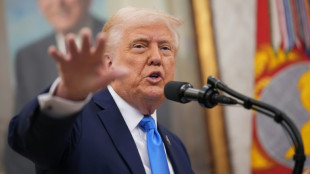 Asian markets edge up but uncertainty rules ahead of Trump tariffs
Asian markets edge up but uncertainty rules ahead of Trump tariffs
-
Nintendo's megahit Switch console: what to know

-
 Nintendo to unveil upgrade to best-selling Switch console
Nintendo to unveil upgrade to best-selling Switch console
-
China practises hitting key ports, energy sites in Taiwan drills
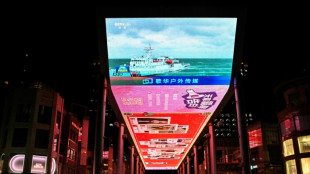
-
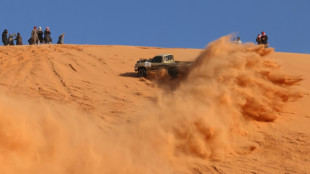 Oil, sand and speed: Saudi gearheads take on towering dunes
Oil, sand and speed: Saudi gearheads take on towering dunes
-
All eyes on Tsunoda at Japan GP after ruthless Red Bull move

-
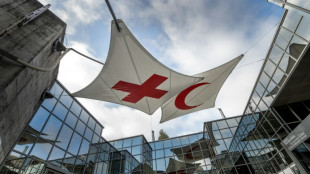 'Image whisperers' bring vision to the blind at Red Cross museum
'Image whisperers' bring vision to the blind at Red Cross museum
-
Hay shines as New Zealand make 292-8 in Pakistan ODI

-
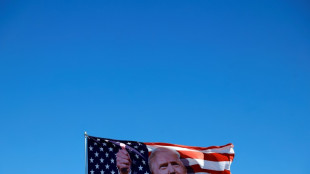 Other governments 'weaponising' Trump language to attack NGOs: rights groups
Other governments 'weaponising' Trump language to attack NGOs: rights groups
-
UK imposes online entry permit on European visitors
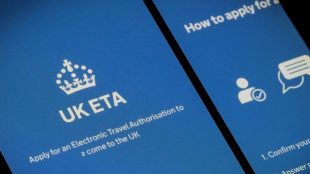
-
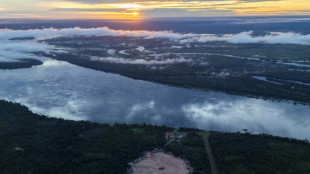 How a Brazilian chief is staving off Amazon destruction
How a Brazilian chief is staving off Amazon destruction
-
Meme politics: White House embraces aggressive alt-right online culture
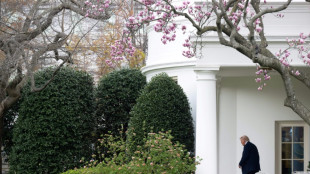
-
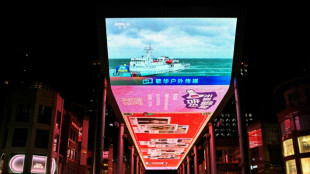 China launches military drills in Taiwan Strait
China launches military drills in Taiwan Strait
-
US senator smashes record with 25-hour anti-Trump speech
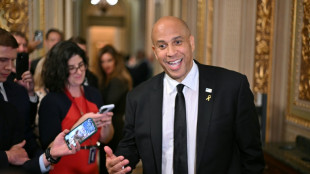
-
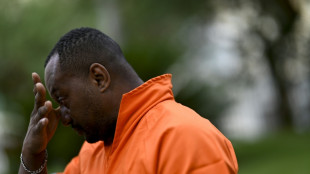 Brazil binman finds newborn baby on garbage route
Brazil binman finds newborn baby on garbage route
-
US senator smashes record with marathon anti-Trump speech
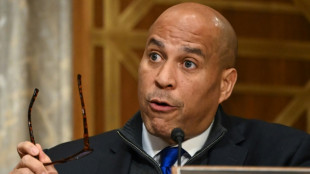
-
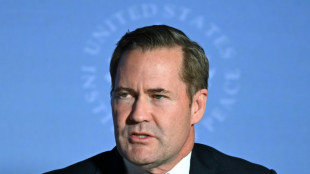 Trump advisor Waltz faces new pressure over Gmail usage
Trump advisor Waltz faces new pressure over Gmail usage
-
Niger junta frees ministers of overthrown government
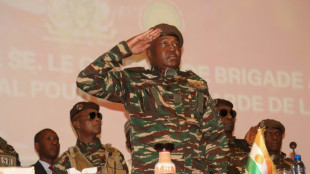
-
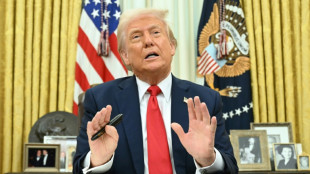 Trump set to unleash 'Liberation Day' tariffs
Trump set to unleash 'Liberation Day' tariffs
-
Boeing chief to acknowledge 'serious missteps' at US Senate hearing

-
 Real Madrid hold Real Sociedad in eight-goal thriller to reach Copa del Rey final
Real Madrid hold Real Sociedad in eight-goal thriller to reach Copa del Rey final
-
Nuno salutes 'special' Elanga after stunning strike fires Forest

-
 PSG survive scare against Dunkerque to reach French Cup final
PSG survive scare against Dunkerque to reach French Cup final
-
Sundowns edge Esperance as crowd violence mars quarter-final

-
 Nottingham Forest beat Man Utd, Saka scores on Arsenal return
Nottingham Forest beat Man Utd, Saka scores on Arsenal return
-
Elanga wonder-goal sinks Man Utd as Forest eye Champions League berth

-
 Stock markets mostly advance ahead of Trump tariffs deadline
Stock markets mostly advance ahead of Trump tariffs deadline
-
US movie theaters urge 45-day 'baseline' before films hit streaming
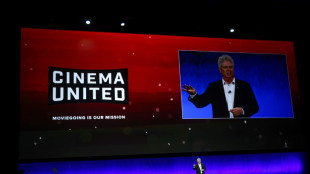
-
 Saka scores on return as Arsenal beat Fulham
Saka scores on return as Arsenal beat Fulham
-
Third-division Bielefeld shock holders Leverkusen in German Cup

-
 Ball-blasting 'Torpedo bats' making waves across MLB opening weekend
Ball-blasting 'Torpedo bats' making waves across MLB opening weekend
-
Newsmax shares surge more than 2,000% in days after IPO

-
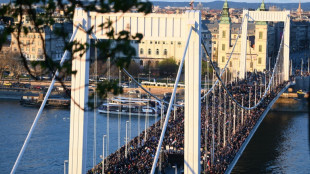 Thousands of Hungarians protest against Pride ban law
Thousands of Hungarians protest against Pride ban law
-
GM leads first quarter US auto sales as tariffs loom

-
 Tesla sales tumble in Europe in the first quarter
Tesla sales tumble in Europe in the first quarter
-
No 'eye for an eye' approach to US tariffs: Mexico

-
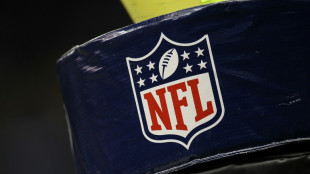 NFL club owners back dynamic kickoffs, delay tush push vote
NFL club owners back dynamic kickoffs, delay tush push vote
-
Trump 'perfecting' new tariffs as nervous world braces
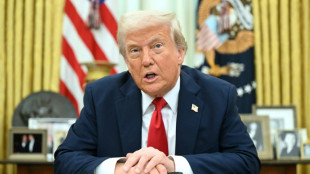
-
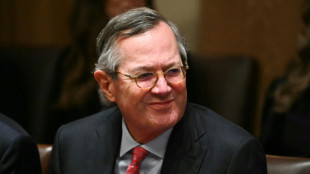 Trump nominee says to press UK on Israel arms
Trump nominee says to press UK on Israel arms
-
French court says Le Pen appeal ruling could come before presidential vote

-
 The battle to control assets behind Bosnia crisis
The battle to control assets behind Bosnia crisis
-
Prabhsimran powers Punjab to IPL win over Lucknow

-
 Mass layoffs targeting 10,000 jobs hit US health agencies
Mass layoffs targeting 10,000 jobs hit US health agencies
-
Tiger's April Foolishness: plan to play Masters just a joke

-
 Myanmar quake toll passes 2,700, nation halts to honour victims
Myanmar quake toll passes 2,700, nation halts to honour victims
-
Turkish fans, artists urge Muse to cancel Istanbul gig
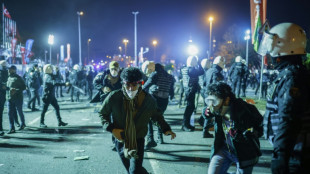
-
 US seeks death penalty for accused killer of insurance CEO
US seeks death penalty for accused killer of insurance CEO
-
UK govt moves to block sentencing guidelines for minority defendants

-
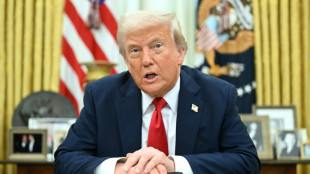 Trump puts world on edge as 'Liberation Day' tariffs loom
Trump puts world on edge as 'Liberation Day' tariffs loom
-
Swedish journalist jailed in Turkey kept 'isolated': employer
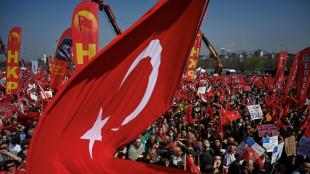

Key moments in the life of Jimmy Carter
Jimmy Carter's 1977-1981 presidency included successes like the Camp David peace accords, but also enough controversy for US voters to see him as weak -- and send him packing after only one term.
Carter's legacy however was largely built on his post-presidency, the longest in US history.
Here are a few key moments in the life of Carter, who died Sunday at the age of 100.
- The Panama Canal -
During his first year in office, Carter went back on a campaign promise and decided to hand back management of the Panama Canal -- which had been in US military control since its construction at the start of the 20th century.
"Fairness, and not force, should lie at the heart of our dealings with the nations of the world," he said at the signing of the canal treaties with Panamanian leader Omar Torrijos on September 7, 1977.
Carter was ridiculed for the move, which gave Panama control over the canal linking the Atlantic and Pacific Oceans at the end of 1999.
History, however, has looked upon the deal as a deft bit of diplomacy.
Giving Panama a meatier role in the canal's management in the run-up to the transfer allowed for stability, and broke with America's image as an overbearing imperialist power in Latin America.
Reacting to Carter's death on Sunday, President Jose Mulino said the former US leader helped Panama achieve "full sovereignty of our country."
- Morality in politics -
Upon his arrival in the Oval Office, Carter looked to distance himself from the realpolitik practiced by his predecessors -- a vestige of the Cold War -- and placed human rights at the heart of his agenda.
"Our principal goal is to help shape a world which is more responsive to the desire of people everywhere for economic well-being, social justice, political self-determination and basic human rights," he said in a 1978 speech at the US Naval Academy.
In concrete terms, Carter notably signed the International Covenant on Civil and Political Rights in 1977. It was eventually ratified by the United States in 1992 after being blocked for years by the Senate.
- Camp David Accords -
In September 1978, Carter invited Israeli premier Menachem Begin and Egyptian president Anwar Sadat to Camp David, the presidential retreat outside Washington.
After 13 days of secret negotiations under Carter's mediation, two accords were signed that ultimately led to a peace treaty the following year.
The diplomatic triumph was cited when Carter was awarded the Nobel Peace Prize.
- 'Crisis of confidence' -
In the summer of 1979, the economy rocked by inflation and his approval rating in free fall, Carter addressed the American people in a nationwide televised speech on July 15.
In that half-hour, he responded to his critics on his lack of leadership, instead laying the blame on a national "crisis of confidence."
"The erosion of our confidence in the future is threatening to destroy the social and the political fabric of America," he said.
The speech was poorly received and would come back to haunt him. Five cabinet members resigned that week.
- Iran hostage crisis -
The hostage crisis -- more than 50 Americans were held for 444 days at the US embassy in Tehran from November 1979 to January 1981 -- was the death knell for Carter's presidency.
A failed military rescue mission in April 1980 all but extinguished his chances of reelection later that year.
Operation Eagle Claw was thwarted by sandstorms and mechanical problems -- eventually, the mission was aborted. In the subsequent withdrawal, two American aircraft collided, killing eight servicemen.
In the following days, then secretary of state Cyrus Vance resigned, and the mission's failure symbolized Carter's inability to resolve the crisis.
The hostages were eventually freed on the same day that Republican Ronald Reagan took office, after thumping Carter at the polls in November 1980.
- The Carter Center -
Carter remained extremely active into his 90s despite his retirement from political life.
In 1982, he founded the Carter Center, which has focused on conflict resolution, promoting democracy and human rights, and fighting disease.
Carter -- often viewed as America's most successful former president -- traveled extensively, supervising elections from Haiti to East Timor, and tackling thorny global problems as a mediator.
- The Elders -
Carter was also a member of The Elders, a group of former world leaders founded by Nelson Mandela in 2007 to promote peace and human rights.
Fellow Nobel peace laureates South African Archbishop Desmond Tutu (who died in 2021), former Liberian president Ellen Sirleaf Johnson and the late UN secretary general Kofi Annan also belonged to the group.
F.Schneider--AMWN
